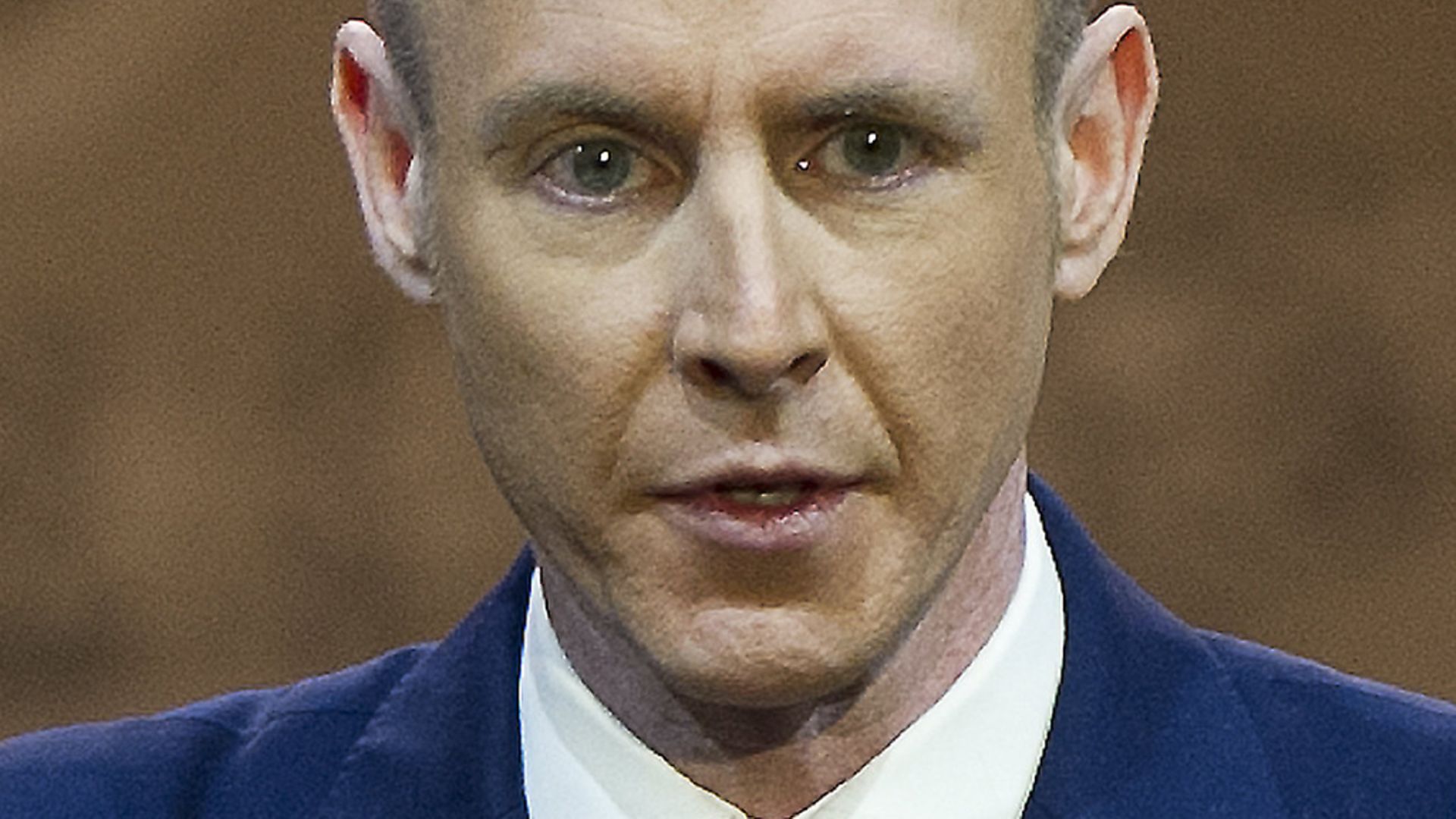
What can Remainers learn from Leavers and their ideas about what Britain post-Brexiter should look like, asks ZOE WILLIAMS.

The last thing I’d advocate is for the Remainers to become more like Leavers.
Succumbing to the inevitable, Leavers – having a programme to enact, and no plan, unity, expertise or vision to enact it with – have found themselves becoming more splenetic and less honest as the months have gone by, which must have taken some doing, considering where they started.
And yet, Leave is better than Remain at some things; they were better at winning. So we should carefully consider, pace Plutarch, where they excel us, ‘and endeavour to excel them, by avoiding what is faulty, and imitating what is excellent in them’.
In our position – fully persuaded that a Tory Brexit will be impoverishing, isolating and divisive, fairly certain that there is no Brexit but a Tory Brexit, yet at the same time wedded to democracy as an over-riding and priceless principle – what arguments would the Leavers be making? I’m going to take open falsehood, inconsistency and bad faith as ‘faulty’, and leave those aside, so we can ignore the hypothetical moves of Nigel Farage, Boris Johnson, Owen Paterson, David Davis; indeed, most of the key voices drag us irresistibly into the territory of arguing with a pig, (you both get covered in mud but the pig enjoys it).

When you try to pick out decent Leave advocates by name, it’s not easy: Dominic Cummings has been sophisticated, but so possessed by faith in a peculiar, modern supremacy (not white, not male, but his own; Supremacy of the Me) that it is hard to pick out a through-line of values: he is his own lodestar, his principles: ‘Do I think it? Then it’s correct.’ Dan Hannan was always laudable for his courtesy, but hs started to argue as if under siege, apparently forgetting that if you’re pro-Brexit, and so is the Government, you are – until that changes – the victor not the vanquished.
So let’s ignore individuals, and concentrate on the concepts that swung it for the Brexiteers. The genius of their slogan, ‘take back control’, has been much discussed for the visceral human emotions it unleashed, the way – previously unconscionable to a politics whose realities were shaped by focus groups – it could unite the left-behind, unemployed woman of Stoke with the moneyed, nostalgic man of Surrey. And that was also the source of its dishonesty, that it promised the return of control in areas that had very little to do with the EU (the colour of passports!), that were impossible to deliver with or without a single market, and that, even where attainable, would do nothing to alleviate the material conditions which had generated the feeling of impotence and chaos in the first place. Any idiot can emulate a promise whose only substance is, ‘that thing you hate? We’ll change it’. Yet this control masterstroke would not have worked had they only, during the campaign, spoken about Brexit.
In fact, they spoke about Brexit hardly at all. There are countless internet memes now, showing Nigel Farage airily promising an off-the-shelf Norway option, or Owen Paterson vowing his lifelong support of the single market. Given how the post-Brexit version of realism has unfolded, how different it is to the picture painted before, one conclusion is unavoidable – not only did they avoid talking about Brexit, except sketchily, to the public, they didn’t even talk very much about it among themselves. So what were they talking about?
That cycle running up to June 23, 2016, was entirely focused on which issues could be weaponised in order to enable leaving the EU. This was the only strategy that would have worked, since prior to the Tory conniption, nobody was interested in Europe. Not unreasonably, people were more interested in the issues which affected their everyday lives. So leaving the EU was turned into an NHS issue – more money for health, if we saved it on bureaucracy – and, ultimately, a wages issue, fewer immigrants would lead to more, better jobs.

Remain has so far tried to capitalise on the shambles of the negotiation and the inevitable turmoil and hardship even a professionally executed Brexit will entail. But while that remains abstract and hypothetical, as it must until anything concrete has happened, the arguments don’t land, or if they do, it’s in a soap opera way, engendering derision rather than passion. We should throw our gaze instead upon what kind of Britain we want to live in.
The NHS would be the obvious place to start, given that infamous bus – but it’s the wrong one. It’s possible to argue that remaining in the EU will mean greater future prosperity and more money to spend on health, but it situates the crisis in a pragmatic frame. In truth, the underfunding of our health service is ideological and not practical: successive conservative health secretaries have seen the NHS as a socialist project, and endeavoured to undermine it for that reason – to amplify the potential for profit, Balkanise its structures, reduce capacity and scale down the power of its workforce. Any money saving is just a by-product. If we allow our nation’s health to come down to what we can and can’t afford, we’re allowing the agenda to be set by the party that sees our ill-health as a deplorable cost, rather than our well-being as the nation’s greatest resource.
Yet there is an argument to make which incorporates the health service but isn’t limited to it; that is, what is the Government neglecting, in order to focus all its energy, money, rhetoric and organisational capacity on leaving the European Union? This partly comes down to allowing the NHS to exist in a permanent state of crisis, but it also means letting its other responsibilities slide. Since long before 2016, Universal Credit has been viewed with anxiety and scepticism, as anything would be, with Iain Duncan Smith in charge of it. However, we now have concrete proof of its failures: families who’ve just survived Christmas still waiting for their first payment; MPs crying in parliament as they swap tales of deprivation across party lines.
It is inconceivable, in a world without Brexit, that this would have been allowed to continue, with a few tweaks – a five-week wait instead of six weeks, ad hoc council hardship funds – here and there. ‘What’s an economy for,’ Gordon Brown once asked, ‘if not to create jobs?’
By the same token, what is Government for, if not to prevent people going hungry? There is no higher purpose. Secondary, but only just, is the homelessness crisis, the highest-ever numbers of children in temporary accommodation, for the longest periods, the greatest amount of rough sleepers, people dying of cold in municipal parks. What’s a Government for, if not to prevent this?
That’s what the Leavers would be asking, in our place: what is Government for? Is it for playing chicken with EU negotiators, re-imagining Britain’s place in the global market of the future, managing outbreaks of dissent in its own ranks, dragooning civil servants into work they cannot see the sense of, or should its more urgent business be the living conditions of its people?
Our attention has been swallowed into this sinkhole for long enough. Once we start demanding a functional, responsible and humane public service, the Brexiteers’ inferno, surviving thus far on the oxygen of collected outrage, will extinguish itself.
Zoe Williams writes political commentary, interviews and reviews for The Guardian and the New Statesman
Warning: Illegal string offset 'link_id' in /mnt/storage/stage/www/wp-includes/bookmark.php on line 357
Notice: Trying to get property 'link_id' of non-object in /mnt/storage/stage/www/wp-includes/bookmark.php on line 37







